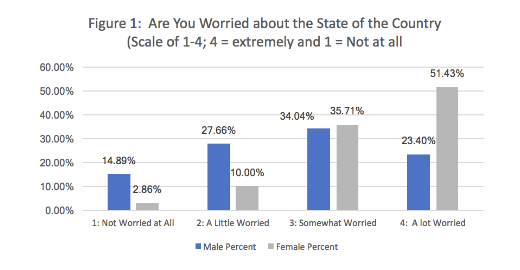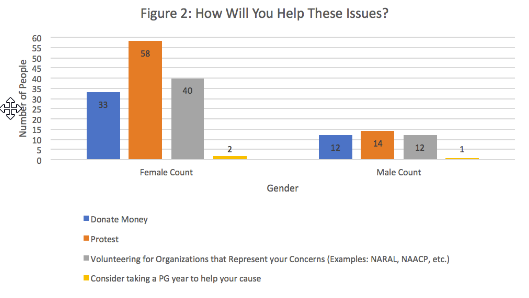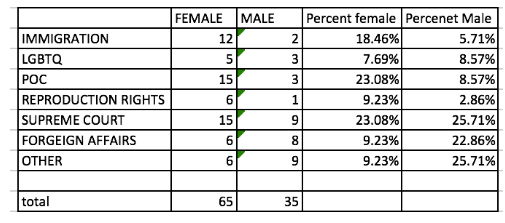On January 20th, 2017, Donald Trump will become the President of the United States and his administration will become a reality. News stories have documented how many people, including entertainers and sports stars, have said they will refuse to go to the White House if invited. Saying no to an invitation, however principled, will not stop his administration from trying to carry out the President-Elect’s agenda. Therefore, it is necessary that we, as a community, take other forms of action to ensure that our country remains just, tolerant, and free of tyranny. The President-Elect has made many controversial statements on a wide variety of topics. In this second installment of the data analysis survey, we are able to see, to what degree, students are worried about the state of the country and what they plan to do about it.
601 students were sent a short survey and 122 responded (20.1% of the student body). The response rate per grade broke down as follows: 22.5% (Form III), 18.1% (Form IV), 22.3% (Form V) and 17.2% (Form VI). The total response rate was down from the last poll taken.
The results of the student body as a whole sat in line with what one would expect from the Fieldston community. When asked if people were worried about the state of the country (1-4 scale: 4 = extremely and 1 = not at all), 41.8% of students were very worried, 34.4% were worried, 16.4% were slightly worried, and 7.38% were not worried at all. The second question raised the questions of what issues students were most concerned about. These issues were mostly distributed evenly with the highest ranking concerns being the Supreme Court (24.04%), People of Color (17.65%), and Other (18.07%) . After establishing what students cared about, they were asked what concrete steps they were going to take in the name of their cause. While 17 students skipped this question, 105 chose to answer. 46.7% said they are going to donate money, 72.38% are going to protest, 52.38% will volunteer for an organization of their choice, 3.81% would consider taking a gap year, and 18.1% answered other.
Splitting the results by male and female demonstrated significant differences in the responses (unfortunately, we were unable to gather enough data for students who identified as non-binary to have meaningful projections). 70 females and 47 males responded. Males were less worried about the state of the country than females. While 15.0% of males were not worried about the state of the country at all, only 3% of women were not worried. Conversely, over 50% of women were most worried while only 23% of men were.
 Males and Females have different priorities for what they would like to protect during the Trump Administration. Looking at which areas people are most concerned about, females were much more concerned than males about immigration, race issues, and to a lesser extent, reproductive rights. Males were much more concerned about foreign affairs and many chose “other.”
Males and Females have different priorities for what they would like to protect during the Trump Administration. Looking at which areas people are most concerned about, females were much more concerned than males about immigration, race issues, and to a lesser extent, reproductive rights. Males were much more concerned about foreign affairs and many chose “other.”
Interestingly, males and females exhibited different levels of commitment to actively protesting the Trump administration. Many more females seemed to be willing to participate in protesting as compared to males.







